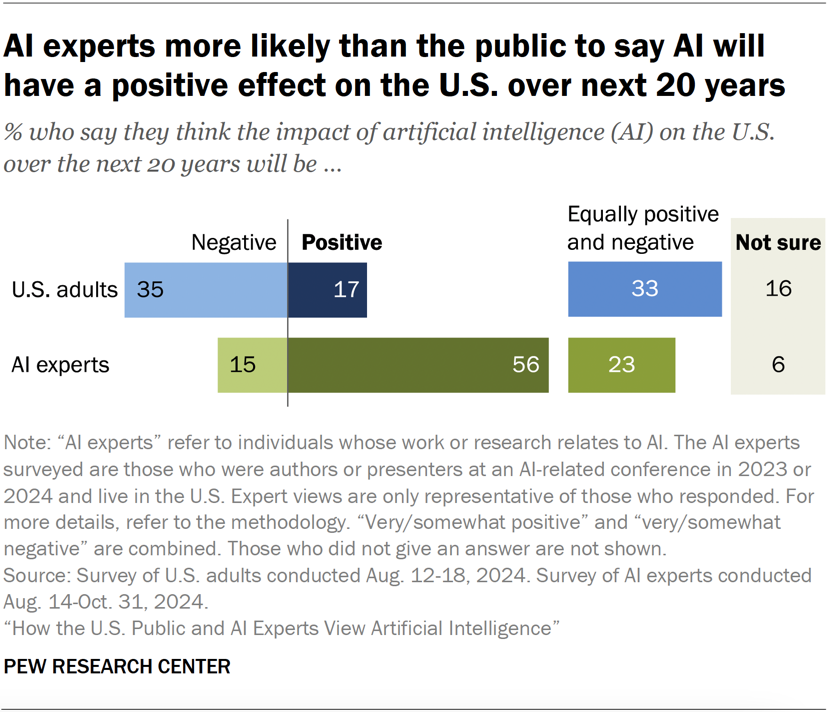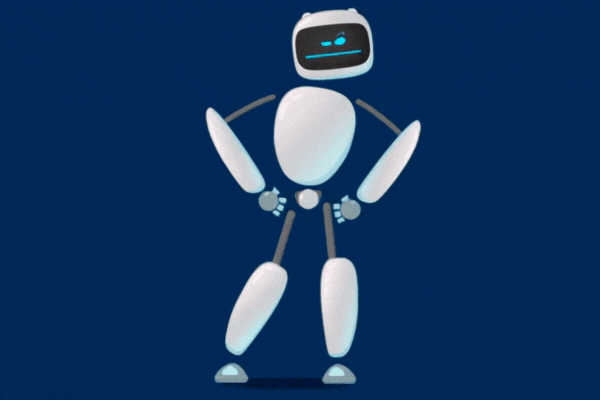A recent report from the Pew Research Center explores how the U.S. public and AI experts perceive the future of artificial intelligence, revealing a significant divide between optimism and caution.
The research, based on a national survey of over 5,400 American adults, an expert survey of more than 1,000 AI specialists, and 30 in-depth interviews with prominent thought leaders, paints a nuanced picture of hopes and fears surrounding AI’s development. Experts generally see AI as a force for progress, predicting improvements in efficiency, healthcare, and creativity, while the general public remains far more uncertain, with concerns centered around job security, misinformation, and personal impacts.
Yet, despite their differing outlooks, both groups share important common ground.
Both experts and the public strongly support tighter AI regulations and express a desire for greater individual control over how AI affects their lives. These insights reflect growing awareness across society that the future of AI hinges not only on technical innovation but also on thoughtful governance and public trust.
The report underscores that addressing public skepticism will be as crucial as advancing AI technology itself.

Why It Matters: This growing gap between expert optimism and public skepticism has direct implications for the adoption, regulation, and development of AI technologies. Public concern could shape political pressure for stricter oversight, while expert enthusiasm may drive rapid innovation. Bridging this divide is essential to ensuring that AI is developed in ways that are ethical, inclusive, and aligned with public interest. Recognizing these perspectives early helps policymakers, businesses, and technologists anticipate challenges and build AI systems that work for everyone.
- Experts Are Optimistic, the Public Is Wary: A solid majority of AI experts (56%) believe AI will have a positive impact on the U.S. over the next two decades, seeing opportunities for growth and innovation. In sharp contrast, only 17% of the general public feels the same, with 45% expressing more concern than excitement about AI’s future.
- Perceived Personal Benefits Are Low Among the Public: While 76% of AI experts expect to personally benefit from AI advancements, only 24% of U.S. adults agree. In fact, 43% of the public worry that AI could harm them personally, underscoring a lack of trust and perceived vulnerability. This suggests that public-facing AI education and transparency will be critical in building user confidence.
- Contrasting Views on Jobs and the Economy: The future of work remains a major point of divergence. Nearly three-quarters of experts (73%) anticipate AI improving the workplace and creating efficiencies, while only 23% of the public foresee positive impacts. Widespread fears of automation, job displacement, and economic inequality continue to shape public sentiment.
- Common Concerns Over AI’s Role in Media and Elections: Despite other differences, both the public and AI experts share anxieties about AI’s influence in sensitive areas like elections and news media. Only around 10% from either group expect positive outcomes from AI in these domains, signaling serious apprehension about misinformation, deepfakes, and election interference.
- Strong Desire for Regulation and Control: Calls for better AI oversight resonate across both groups. Over half of Americans and a majority of experts favor clearer regulations and stronger personal controls over AI tools. Both camps recognize that without responsible governance, AI risks outpacing society’s ability to manage its consequences, especially in areas like privacy, bias, and accountability.
Go Deeper -> How the U.S. Public and AI Experts View Artificial Intelligence – Pew Research Center






